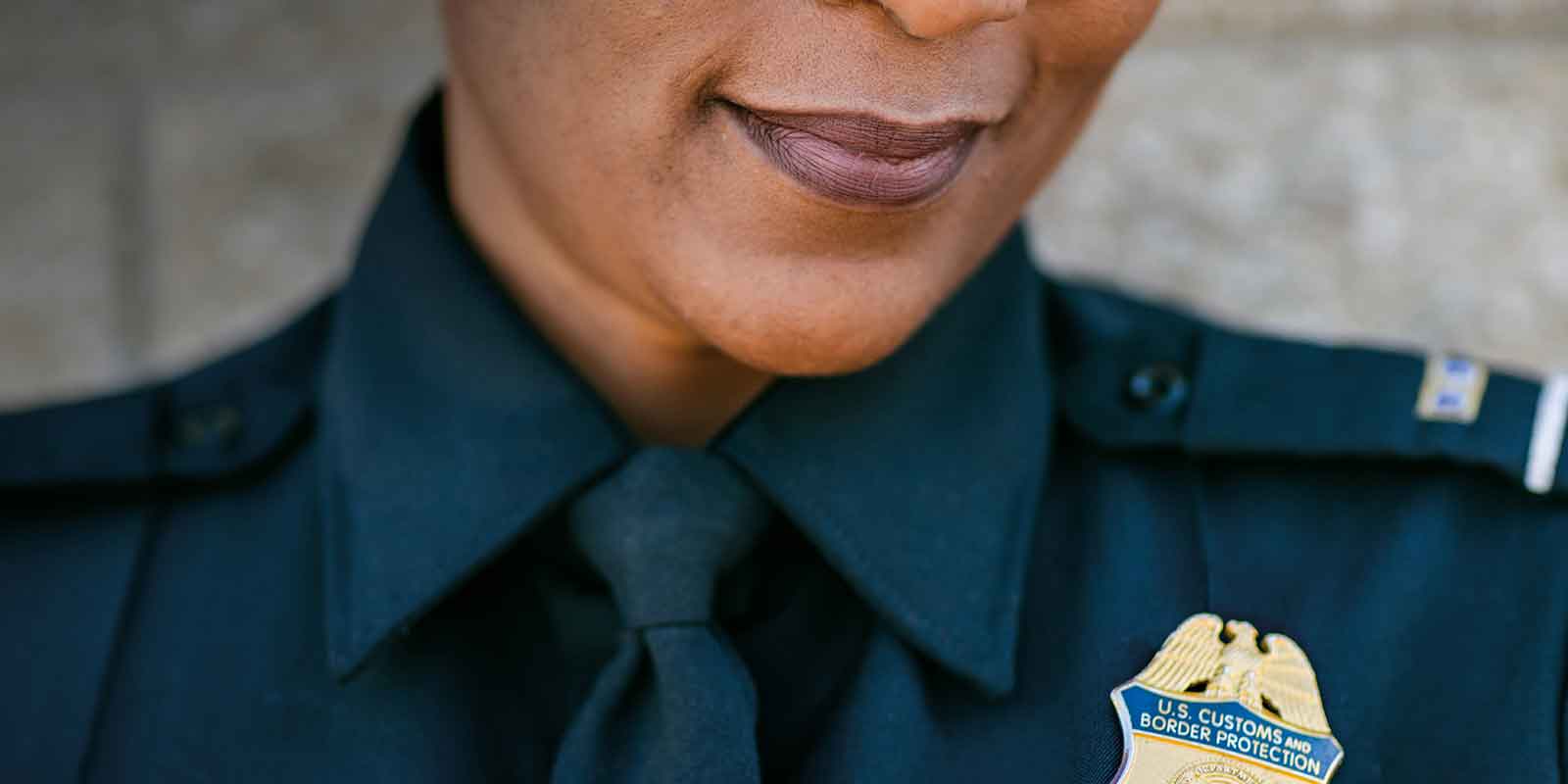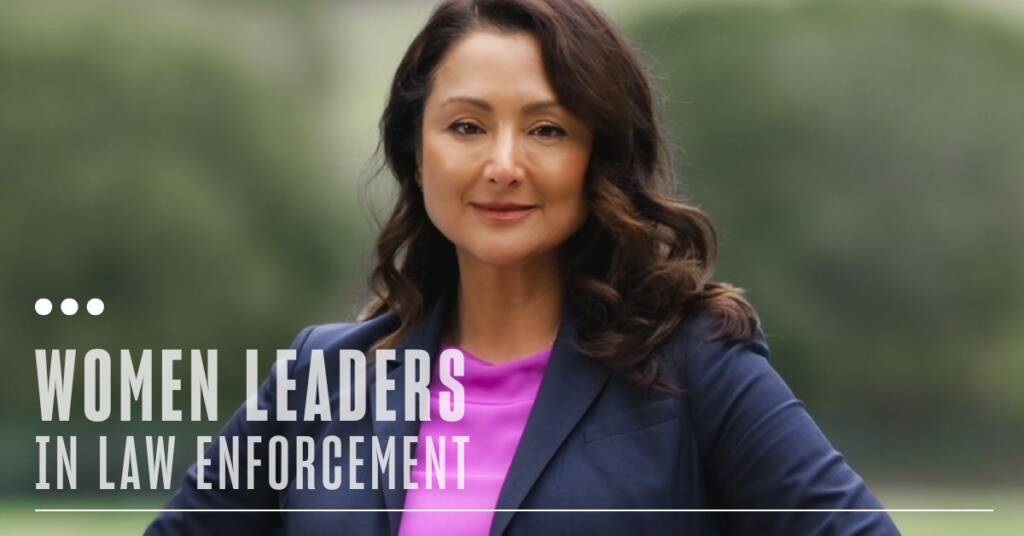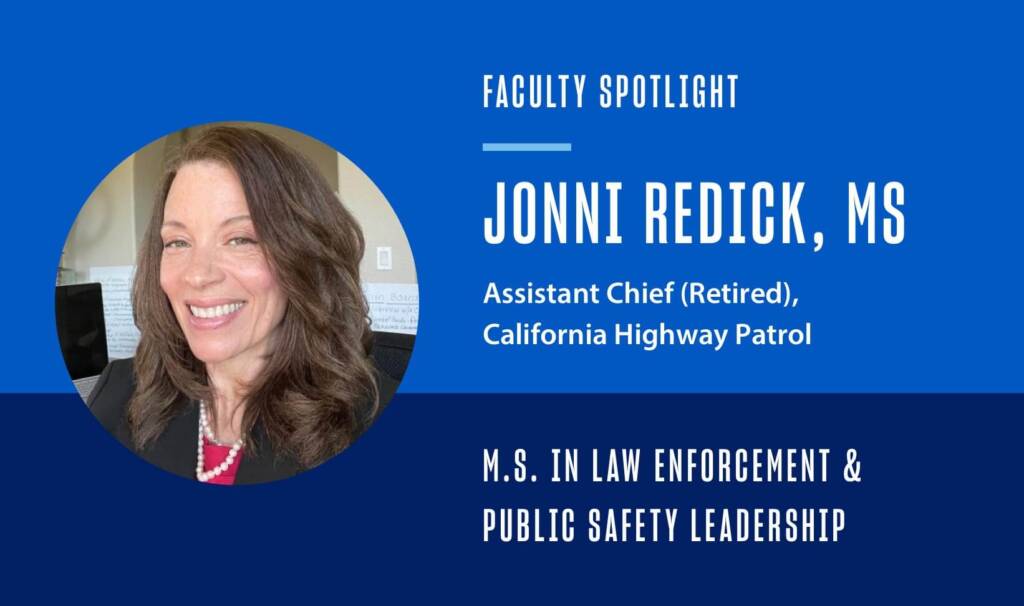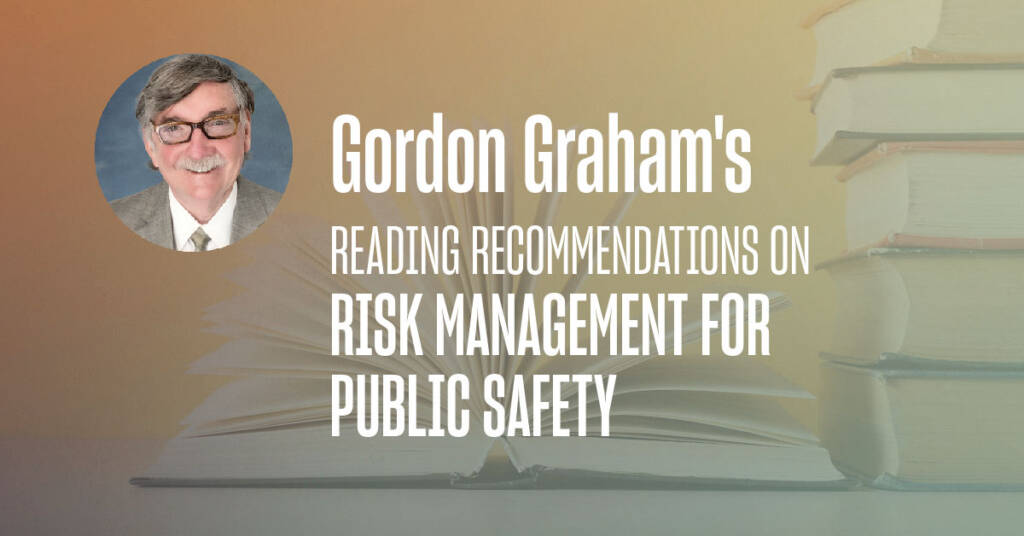Women account for a small but growing percentage of police officers. The national average for sworn women police officers is approximately 13%, up from just 3% in the 1970s. Fortunately, the benefits of recruiting, training and promoting more female officers are now being recognized by agencies and law enforcement associations across the country.
The encouraging momentum toward creating a more balanced public safety force is fueled in part by a growing appreciation of certain unique and valuable professional qualities that women often bring to law enforcement. Such qualities are believed to enhance the ability of law enforcement agencies to make a positive impact on the communities they serve.
[RELATED] How a Master’s in Law Enforcement Leadership Helps Give Women a Competitive Edge [Free eBook] >>
Primary Benefits of Recruiting More Women to Work in Law Enforcement
While most departments and law enforcement agencies are aware of the need to hire a diverse workforce, diversity initiatives often focus more on ethnicity than gender. That’s a problem because, with women making up such a small minority of sworn law enforcement, almost half of the population has been excluded from a career in which they could affect significant and positive change.
This despite considerable evidence that women are having “a profound impact on the culture of policing,” according to Chuck Wexler, executive director of the Police Executive Research Forum, who said “they bring their own set of skills to a traditionally male-dominated culture, and that is very helpful.”
Citing research that women are skilled at using communication to help defuse potentially volatile situations, a practice that is increasingly being emphasized in many police and sheriff’s departments, Wexler said, “departments who have had a lot of experience hiring women recognize how invaluable they are in diffusing contentious situations.”
Here are four ways women are having a positive impact on law enforcement practices.
1. Women officers are less likely to use excessive force.
One of the most widely acknowledged benefits of recruiting more women for careers in criminal justice is the fact that, according to an article in The Atlantic, “women officers are less likely to use excessive force or pull their weapon. They are defendants in lawsuits far less often than men, saving municipalities millions in legal fees.”
This claim is backed by a Journal of Criminal Justice Study, as referenced in the 2019 National Institute of Justice Special Report: Women in Policing, Breaking Barriers and Blazing a Path. “Meta-analyses have confirmed that women officers are less likely than men to use force and that men officers are significantly more likely than women to engage in police misconduct.”
These factors are especially important during a period when police use of force is under increased scrutiny, often causing heightened tensions between police and the communities they serve.
Why are women less likely to use force? First of all, female law enforcement officers are more likely to utilize de-escalation tactics in tense situations, both because they can be more effective, but also because women can sometimes be at a physical disadvantage when engaging with a suspect. “Typically, female officers are smaller and not as physically strong as our male counterparts, so we do have to rely on those other skills and abilities,” said Deputy Chief Shannon Trump of the Noblesville, Indiana Police Department and 2021 President of the National Association of Women Law Enforcement Executives (NAWLEE).
She continued, “Even though we know we can use force and we’re justified to do so, I think you see female officers rely on de-escalation and connecting with others to get them to do what they want them to do without having to apply or use force.”
2. Women officers are skilled at addressing violence against women and sex crimes.
Another critical area where women in law enforcement can make a difference is in addressing violence against women and sex crimes. One study conducted by the University of Zurich found that “as female representation increases among officers in an area, violent crimes against women in that area, and especially domestic violence, are reported to the police at significantly higher rates.” This report also found that as female officer representation increases, there is a marked decline in intimate partner homicide rates and in rates of repeated domestic abuse. Similar findings were noted about reports of rape and sexual assault cases, where studies found that having a greater number of women in the policing workforce is correlated with higher reporting rates of rape incidents and higher clearance rates for rape cases.
“It is absolutely critical to have women working in criminal justice,” said Jennifer Montoya, a criminal investigator with the Department of Defense and a graduate of University of San Diego’s M.S. in Law Enforcement & Public Safety Leadership program. “For example, with sexual assault cases, the victim might want to talk to a woman. But that can’t always happen because there aren’t enough females in the department and it ends up affecting the mission. These are human beings we are dealing with. Sexual assault is an extremely sensitive issue, and we need to be able to act humanely.”
3. Women officers can help improve police-community relations.
Studies have consistently found that women possess a number of traits that make them trusted partners to their communities, ultimately helping to improve police-community relations. According to an article published in the IACP’s Police Chief Magazine, “women are consistently rated as trusted by their communities…Women have high levels of interpersonal communication skills, which translates into more effective practices in the field…Female officers are less likely to use force, use excessive force, or be named in a lawsuit than male officers.”
These factors have in turn enabled women to more effectively improve police-community relations. “We have different strengths than our male counterparts in the profession, and we can use our communication skills to help our communities,” said Kym Craven, a former law enforcement professional who now serves as Executive Director of NAWLEE. “Traditionally, women have been raising children and what more do we want for our kids than to have a safe space to grow up? So female officers can be part of creating safe, livable communities. And when women think about it that way, they can have a really different perspective about all that law enforcement can do.”
4. Women have superior problem-solving skills.
Beyond a gender dichotomy, research shows that diverse workforces are more effective, creative and resilient than homogenous workforces, and that teams with broad perspectives are better at making decisions and solving problems. In addition, women have been proven to have superior problem-solving skills, a critical ability for law enforcement professionals.
We know already that women do better with cases of violence against women for solvability, we know that women use less force, we know that women are better at problem solving,” said Craven. “And by bringing the strengths of men and women together in the workforce it makes it a better place to work and it provides a better service delivery to our communities.”
Encouraging More Women to Pursue Careers in Law Enforcement
If women have such a positive impact on the profession, why aren’t there more women working in law enforcement agencies today? The reasons vary, from stereotypes to recruitment campaigns targeted at males to physical ability tests that favor male upper body strength.
Along with the growing awareness of their potential to make a positive impact, more can be done to encourage women to enter the field of law enforcement. One example of a recruiting effort aimed at women comes from the U.S. Border Patrol and a hiring push focused exclusively on women. According to Katherine Spillar, co-founder of the National Center for Women & Policing, “The agency recognized that having just five percent women in its ranks impedes its ability to work with the tens of thousands of migrant women who cross the U.S.-Mexico border each year, many of whom suffer sexual assaults during their journey.”
Besides recruitment campaigns aimed at women, Montoya says encouraging young girls and offering mentorship is another way to bring more females into the field. “I started in the Police Explorers program when I was 15 and stayed in the program until I aged out at 21. The Explorer program changed my life entirely — it was my first taste of law enforcement. If it wasn’t for the Explorer program it would have been so much harder for me to get where I am today.”
The 30×30 Initiative
Launched in the wake of a 2018 National Institute of Justice report, the 30×30 Initiative aspires to increase the representation of women in police recruit classes to 30% by the year 2030, and to ensure police policies and culture intentionally support the success of qualified female officers throughout their careers.
Driven by extensive research and analysis, the 30×30 Initiative has found that women officers benefit communities and law enforcement agencies because they:
- Use less force and less excessive force
- Are named in fewer complaints and lawsuits
- Are perceived by communities as being more honest and compassionate
- See better outcomes for crime victims, especially in sexual assault cases
- Make fewer discretionary arrests, especially of non-white residents
Today, there is a coalition of police leaders, researchers, and professional organizations that has joined together to advance the 30×30 Initiative. Through their advocacy, they are slowly but steadily raising awareness about the importance of female representation in law enforcement. To date, 115 law enforcement agencies across the country have pledged to help lead the way in advancing women in policing. The 30×30 Pledge calls for these agencies to:
- Take measures to increase the representation of women in all ranks of law enforcement;
- Ensure that policies and procedures are free of all bias;
- Promote equitable hiring, retention and promotion of women officers; and
- Ensure their culture is inclusive, respectful and supportive of women in all ranks and roles of law enforcement.
Advice for Women Seeking Career Advancement in Law Enforcement
Deputy Chief Trump and Executive Director Craven have a combined 50+ years of service in law enforcement. Based on their diverse experiences across many different roles within law enforcement agencies, combined with their advanced education and work as advocates for female law enforcement officers, they have unique insights into what women can do to be successful in this career.
“You’re going to find yourself in a job that has challenges that you might not have encountered prior to entering the career,” said Deputy Chief Trump. “Seek out a mentor, and find somebody who can help you along the way and can work through some of those things with you.”
She continued, “And don’t let other people tell you what you can’t do. Put in for special assignments and have the confidence and the self-worth to know that you are capable of doing things that you may not think that you are.”
There is also a new generation of women being promoted to law enforcement leadership and command roles, with a growing number of police chief positions across the country being filled by women.
Executive Director Craven echoed those sentiments. “Don’t underestimate yourself and don’t hold back. Go for your goals and set your sights on moving up in your career. Even if that means sparking change in an agency in order to get that promotion.”
Resources for Women in Law Enforcement
There aren’t many resources for female law enforcement professionals specifically, however, the handful that do exist provide great information around career advancement, advocacy, education and more. Some of the most recommended resources for women in law enforcement are:
- NAWLEE
- International Association of Women Police
- Women Leaders in Law Enforcement of Los Angeles County
- National Organization of Black Women in Law Enforcement
- Massachusetts Association of Women in Law Enforcement
- Women in Federal Law Enforcement
- SameShield
The Importance of Education for Female Law Enforcement Leaders
The importance of education in law enforcement, while once debated, is now widely acknowledged as a priority for law enforcement leaders — regardless of gender. Recent research shows a positive correlation between education and job performance at all levels of law enforcement.
The recent calls for police reform, combined with mounting evidence that an educated police force can have numerous positive effects, have sparked a nationwide conversation about raising education requirements for police officers. For female law enforcement officers especially, advanced education in specialized areas of the field such as leadership, conflict resolution, and regular day-to-day tasks are a worthwhile pursuit to both help one’s resume stand out and help prepare for promotional exams and interviews.
So while law enforcement professionals may not have needed an advanced degree in the past, times are rapidly changing. Today, there is a case to be made that law enforcement needs diverse leaders who are equipped with 21st century skills that go beyond traditional police academy or undergraduate training. That training can come in many forms, but more and more aspiring police leaders are recognizing the value of a leadership-focused master’s degree like the one offered by University of San Diego.
“What I liked best (about the USD degree program) is that it was extremely relevant to my position as well as the current issues in law enforcement today,” said Jennifer Tejada, a retired chief of police and current faculty member in the M.S. in Law Enforcement and Public Safety Leadership program at University of San Diego. As someone who believes advanced education is “very important” for all police leaders regardless of gender, Tejada added, “I would really encourage law enforcement professionals to consider a program like this,” she said, “because it really provides the foundation you need to be the best that you can be in law enforcement.”
[RELATED] Female Police Chief Says Master’s in Law Enforcement Leadership Helped Make Her a ‘Better Leader’ >>
The USD master’s degree program differs from a traditional criminal justice degree by offering a skills-based, practical curriculum that goes beyond the traditional criminal justice curriculum by tackling the issues facing law enforcement today and providing critical leadership competencies needed by departments and agencies across the country.
Montoya, the DoD investigator and USD master’s degree alumna, is also a firm believer in the value of advanced education in her line of work. “The law enforcement field is constantly changing and evolving on a daily basis. Criminals get smarter and technology is always advancing,” said Montoya. “There is so much that this master’s program has taught me — not only the professors, but the other students in the program.”
“Programs like this one reinforce the emotional, academic and ethical practices of what is considered ‘good policing’ by teaching the importance of professionalism, open-mindedness and the framework of ethical community policing,” says Jazzma Rainey, a Customs and Border Protection agent who recently graduated from the USD program.
“Learning about cultural and social issues that create a need for organizations like Black Lives Matter from an academic standpoint enables law enforcement personnel to engage with cultural and political movements with emotional intelligence and good moral conduct, even in the toughest situations.”
Frequently Asked Questions About Women in Law Enforcement
Q: Why should women consider a career in law enforcement?
A: Women bring unique skill sets to the profession, including advanced problem solving skills, de-escalation, and more. Beyond soft skills, women who choose a law enforcement career will get to work and serve in the communities they live, helping to improve their community safety. Having females on the police force also helps improve representation and creates a law enforcement agency that is more reflective of the population they interact with.
Q: What are the unique benefits of having female law enforcement officers?
A: There are many, but some of the most research and statistically proven benefits of having more female law enforcement professionals include:
- They use less force and less excessive force
- They have superior problem solving skills
- They are named in fewer complaints and lawsuits
- They are perceived by communities as being more honest and compassionate
- They see better outcomes for crime victims, especially in sexual assault cases
- They make fewer discretionary arrests, especially of non-white residents
Q: What is the 30×30 initiative?
A: The 30×30 Initiative is a coalition of law enforcement professionals and agencies who are working to increase the representation of women in police recruit classes to 30% by 2030, and to ensure police policies and culture intentionally support the success of qualified women officers throughout their careers.
Q: How can agencies encourage more women to enter law enforcement?
A: There are a few steps that law enforcement agencies can and have begun to take to attract more women to the profession. Many within law enforcement are actively working to change the culture and narrative around what a police officer should look like. Agencies also need to ensure that their promotional processes do not unfairly disqualify female officers from rising through the ranks. Finally, many believe that an active recruiting campaign geared toward young girls should begin as early as grade school, so that they can see law enforcement as a viable career option for them.
Q: Why do we need more women in law enforcement?
A: There are a number of reasons why we need more women in law enforcement — increased diversity, a more balanced workforce, a police force reflective of the community — but some of the important and research backed reasons include:
- Women officers are less likely to use excessive force
- Women officers are skilled at addressing violence against women and sex crimes
- Women officers can help improve police-community relations
- Women have superior problem-solving skills





